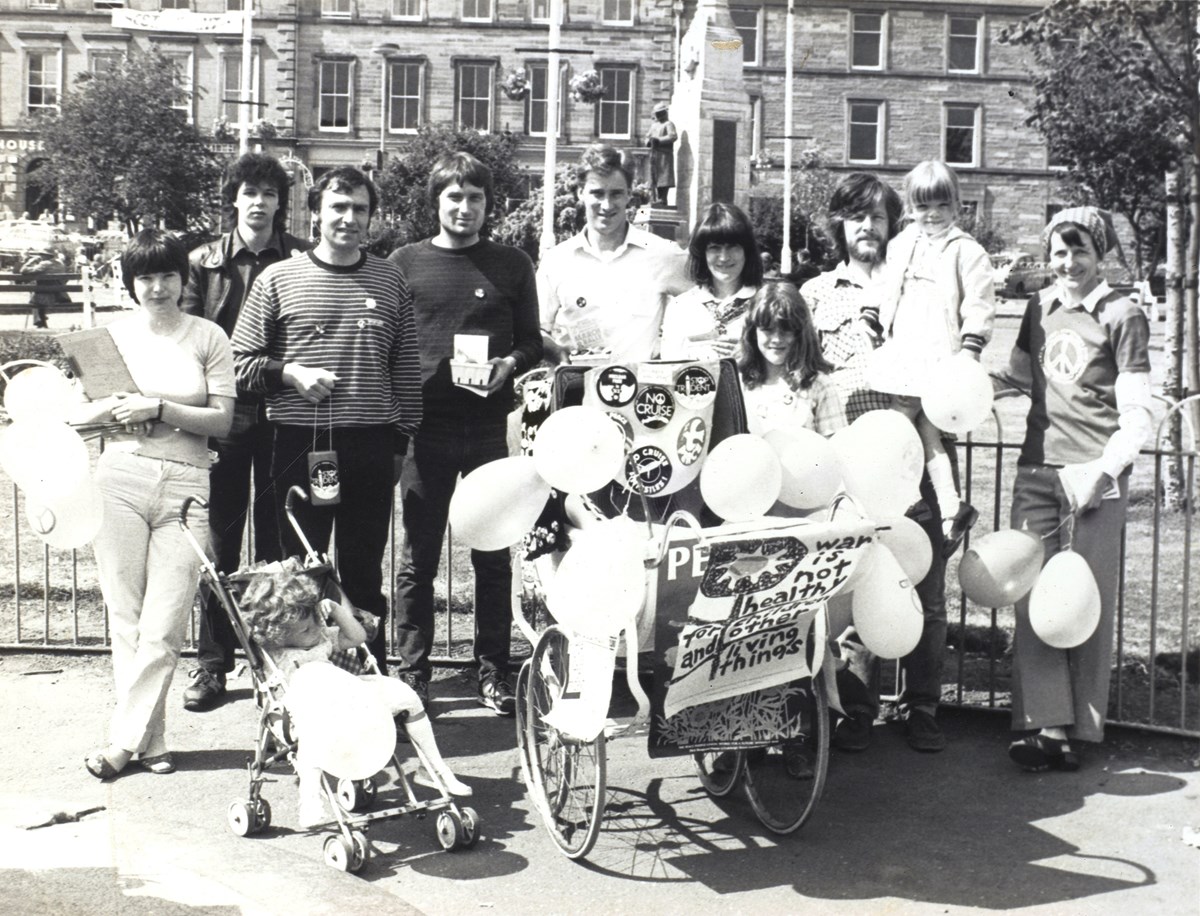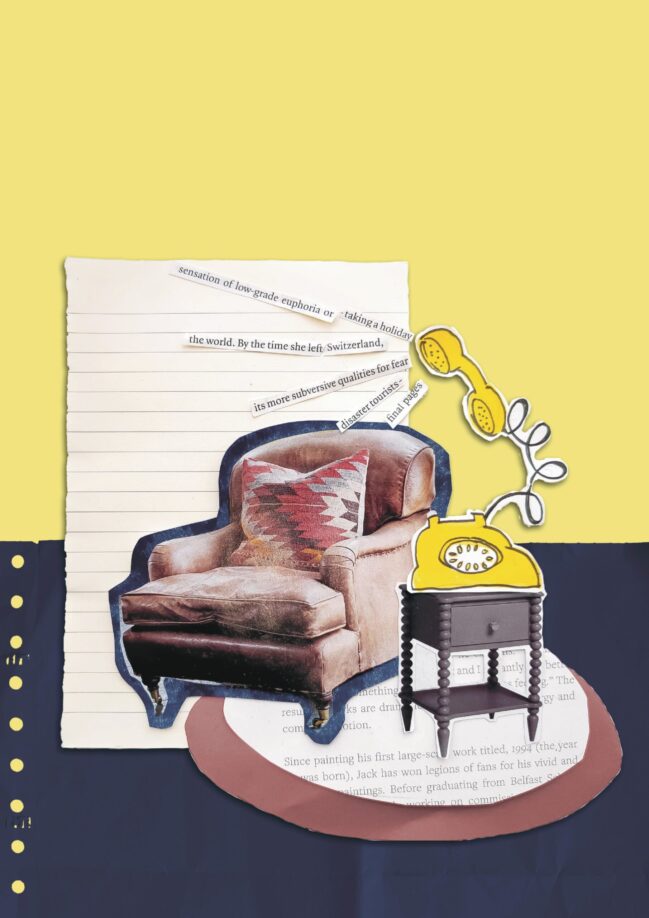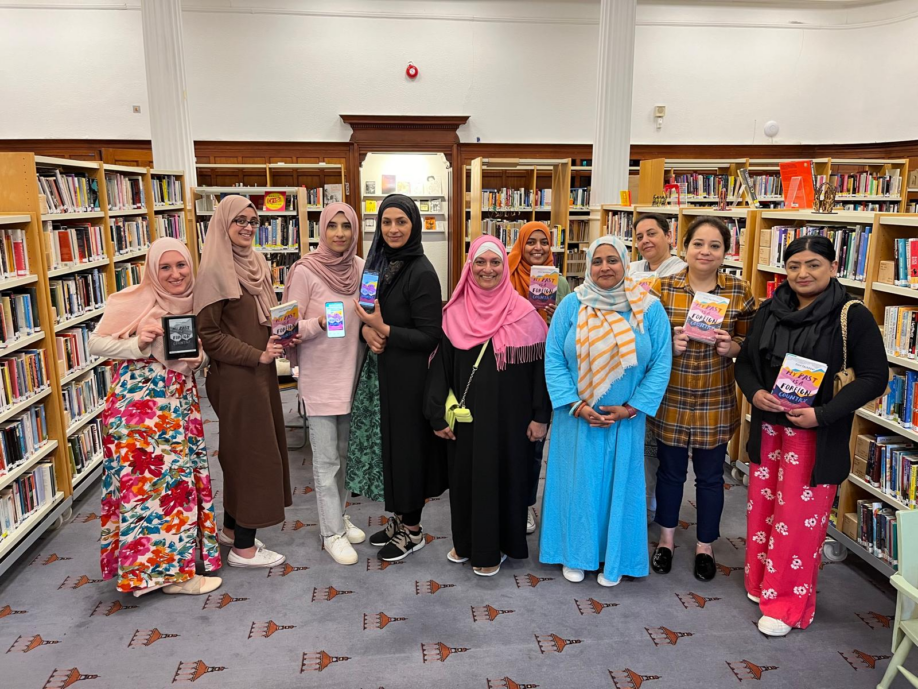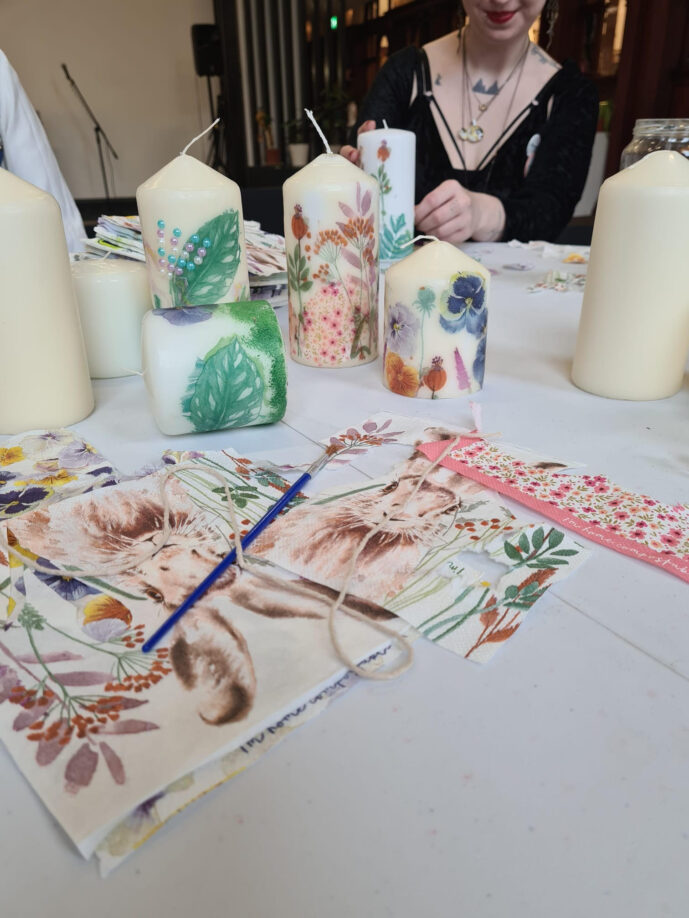
Banners, Ballads and Badges

The impact of the Cold War still lingers in Scottish politics, culture and memory. Join an afternoon of talks and crafting, at the National Museum of Scotland to better understand a time when the world stood on the brink of nuclear war. Activists and researchers, including the Gareloch Horts, will share their stories, reflecting on the significance of peace camps and vibrant anti-nuclear protests that attracted women from all over the world.
Joining on the day will be speakers from National Museums Scotland, the National Library of Scotland and the Gareloch Horticulturalists (Horties). Together they will discuss the significance of Scotland’s peace camps and vibrant anti-nuclear protests, which attracted women from all over the world.
The speakers will also explore how activism and protest material from this period has been collected, documented and preserved for future generations, and consider how it has influenced contemporary political and environmental movements internationally.
Schedule
- 13:00 Drop in to our Event Space to view peace banners and create your own origami peace crane and feminist pin badge. This craft session will be led by The Gareloch Horticulturalists (Horties).
- 14:00 Take your seat in the Auditorium for our panel discussion, hosted by award-winning broadcaster and author Gemma Cairney.
- 15:10 Staying in the Auditorium, composer Penny Stone leads us in song, sharing the history and meaning behind some old and new peace and protest songs. Join in or sit back and enjoy.
- 15:30 Opportunity for a self-led visit to the Cold War Scotland exhibition.
Biographies
Dr Sarah Harper is Cold War Research Fellow at National Museums Scotland. Sarah’s research on Scottish anti-nuclear protest material is featured in our Cold War Scotland exhibition and publication.
Hannah Grout is Assistant Curator on the Scottish Women Waging Peace Project at the National Library of Scotland. The project aims to catalogue and promote archival material to illuminate the under-explored histories of women’s engagement in politics and activism.
Beth Junor is a writer, gallerist and peace activist. She was involved with Greenham Common Women’s Peace Camp in the 1980s and 1990s. During this time, she carried out numerous non-violent direct actions in support of nuclear disarmament.
Caroline Westgate is a member of The Gareloch Horticulturalists (Horties), a women’s non-violent direct action peace group. The group’s 40th anniversary of campaigning and acting for the abolition of nuclear weapons in the UK using a range of creative methods was recently celebrated at Glasgow Women’s Library.


Banners, Ballads and Badges
Saturday, 8th March , 1:00pm to 3:30pm
Accessibility
There is level access to the museum via the main doors to the Entrance Hall on Chambers Street, the Tower entrance at the corner of Chambers Street and George IV Bridge, and the Lothian Street entrance. Lifts are available to all floors of the museum.
There are toilets on most levels of the museum, including accessible toilets and baby changing facilities. There is a Changing Places (U) toilet in the Entrance Hall on Level 0.
Wheelchairs are available for loan at no charge. Please note wheelchairs cannot be booked in advance. On arrival, ask about availability at the Information Desk.
Small mobility scooters are permitted inside the museum.
Guide dogs, hearing dogs and other recognised assistance dogs are admitted.
There are induction loops throughout the museum.
If you have any specific access requirements, please email PublicEvents@nms.ac.uk.
Booking
Book this event through the National Museum of Scotland website.



